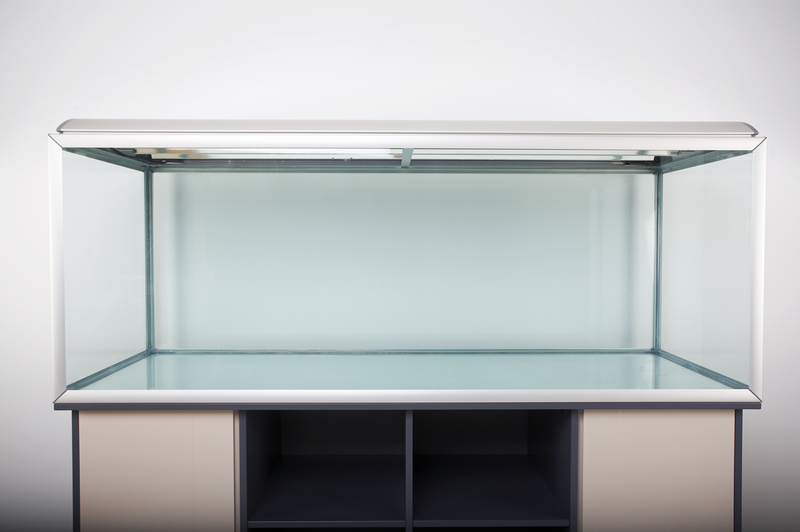The Complexities of Piano Moving: Leave it to the Pros
Posted on 25/06/2025
Moving a piano is one of the most challenging and intricate tasks in both residential and commercial relocations. Unlike typical furniture, pianos require specialized care due to their weight, size, and delicate internal components. If you are planning a move and have a valuable piano, understanding the complexities involved in piano moving will convince you why this is a job best left to professional piano movers. In this comprehensive guide, we'll discuss the risks, challenges, and essential reasons to hire expert piano movers to protect your musical investment.
Understanding the Unique Challenges of Moving Pianos
Pianos come in various shapes, sizes, and weights, and each model presents its own set of challenges to piano moving experts. Moving a piano is much more than just heavy lifting. Here's why this specialty task is far more difficult than most people imagine:
The Sheer Weight and Size of Pianos
- Grand pianos can weigh anywhere between 500 and 1,200 pounds, with some concert grand pianos tipping the scale at nearly 1,400 pounds.
- Upright pianos are often between 300 and 800 pounds, depending on the model.
- Irregular shapes and sharp edges make grasping and maneuvering these instruments especially tricky.
- Pianos are typically larger than most doorways and hallways, requiring careful angling to avoid damage.
Delicate and Complex Internal Mechanisms
Although pianos look robust on the outside, their interiors are highly sensitive. A typical piano contains over 10,000 moving parts!
- Strings, hammers, pedals, and keys must remain precisely positioned to ensure tune and quality.
- Improper handling during a move can cause internal misalignments or even irreversible damage.
- Pianos are also sensitive to temperature and humidity fluctuations, which can warp wood or stretch strings.
Risks to Your Property and Physical Safety
- Inexperienced movers attempting to move a piano risk severe injury -- to themselves, to your floors, walls, and to the piano itself.
- The weight distribution in pianos is not always even, making them unpredictable when lifted incorrecty.
- Without specialized equipment, the risk of dropping the piano increases significantly, with consequences as costly as rebuilding or total loss.

Why You Should Hire Professional Piano Movers
Now that we've reviewed the main difficulties involved in moving pianos, it's clear why turning to professional piano movers is not only wise but necessary. Here are compelling reasons to invest in expert help rather than taking on this complex task yourself:
Specialized Training and Extensive Experience
- Piano moving professionals receive intensive training in how to safely dismantle, transport, and reassemble the various types of pianos.
- They possess a deep understanding of internal piano architecture, allowing them to identify and prevent possible issues during the move.
- Expert piano movers bring years of real-world experience, which is irreplaceable when dealing with unique obstacles such as tight staircases or narrow elevators.
Proper Tools and Moving Equipment
- Specialty piano dollies and skids designed to support the weight and structure of different piano models.
- Cushioning materials, straps, and harnesses to protect both the instrument and your property during every stage of the move.
- For grand pianos, furniture blankets and climate-controlled trucks are essential to prevent nicks, scratches, and environmental damage.
- Hoisting and rigging systems to move pianos through windows or over balconies when standard passageways aren't an option.
Comprehensive Insurance Coverage
Reputable piano moving companies offer full insurance protection, which means your instrument is covered against accidents, loss, and damage during the move. Unlike standard moving insurance, piano-specific insurance ensures that the full value of your instrument is safeguarded from start to finish.
Protecting the Piano's Value and Sound Quality
- Improper handling can knock the instrument out of tune or cause invisible stress fractures in the frame or soundboard.
- Experienced piano movers know how to secure and support the instrument to maintain optimal condition and tonal quality.
- They will also recommend post-move tuning and a brief acclimation period to let your piano adjust to its new environment.
What to Expect When You Hire a Professional Piano Moving Service
Wondering how experienced piano movers approach the task? Here's a breakdown of a typical professional piano move, from pre-move preparation to final placement:
1. Detailed Assessment
Piano movers begin by assessing:
- The type, size, and model of your piano.
- The layout of the pickup and delivery locations -- including stairs, doorways, and tight turns.
- Any obstacles, such as elevators, uneven floors, or steep driveways.
This consultation allows them to plan the safest and most efficient route for your piano moving process.
2. Pre-Move Preparation
- Securing the instrument: Keys, pedals, and lids are locked and protected.
- Disassembly: For grand pianos, legs and the lyre are carefully removed and each component is wrapped securely.
- Padding and wrapping: Piano bodies are blanketed and strapped to prevent cosmetic and structural damage.
3. Safe Transport
- Using specialized dollies and ramps, the piano is moved with precision, minimizing stress on the instrument.
- Movers adjust their techniques for stairs, sharp turns, or outdoor terrain as needed.
- Pianos are loaded into climate-controlled moving trucks, which protect sensitive wood and mechanisms from humidity, heat, or cold.
4. Careful Unpacking and Placement
- At the delivery location, the process is reversed: Movers reassemble and uncrate every component with precision.
- Pianos are leveled and positioned exactly where you want them, accounting for flooring and environmental factors.
- Professional movers will advise on post-move tuning and help you plan a safe acclimation process.
How Piano Moving Differs from Standard Moving Services
Many people wonder if they can simply use regular movers for their piano. The answer: using non-specialized movers is risky and is likely to result in damage. Here's how professional piano relocation sets itself apart:
- Specialized Knowledge: Understanding complex moving parts and handling delicate finishes are outside the scope of general movers.
- Customized Equipment: The proper use of skids, hoists, and trolleys is exclusively part of a piano mover's toolkit, not your average moving van.
- Piano Insurance: Coverage tailored specifically for pianos is rarely offered by standard moving companies.
- Environmental Controls: Climate-controlled vehicles are essential for sensitive wooden instruments, which regular movers may not provide.
Tips for Hiring a Reputable Piano Moving Company
To ensure your piano is relocated safely and professionally, keep these essential tips in mind when searching for trustworthy piano movers:
- Verify Licensing and Insurance: Confirm that the company is licensed, bonded, and carries specialized piano moving insurance.
- Read reviews and check references to evaluate the company's track record with delicate instruments.
- Ask about the movers' specific experience with your type and size of piano.
- Request a detailed, written estimate outlining all potential charges and services, including disassembly, wrapping, transportation, and reassembly.
- Check for professional affiliations, such as with the Piano Movers Association or other music industry organizations.

Frequently Asked Questions About Piano Moving
Do I really need to hire a professional piano mover?
Absolutely. Specialized movers greatly reduce risks of personal injury, property damage, and costly harm to your piano. Professional equipment and training are crucial for safe and successful moves.
How much does it cost to move a piano?
Piano moving costs vary based on the piano's type and size, distance of the move, degree of difficulty (stairs, narrow access, etc.), and the need for special services like hoisting. Expect to pay anywhere from $150 for a local upright piano move to $1,000 or more for grand piano moves over long distances.
Will my piano need to be tuned after moving?
Yes. Even with the most careful handling, differences in humidity, temperature, and vibration during transport can affect your piano's tuning. Most experts recommend tuning your instrument after it has acclimated for a few weeks in its new home.
How far in advance should I book a piano mover?
Ideally, schedule your professional piano moving service at least 2-4 weeks in advance, especially if you are moving during busy seasons.
Conclusion: Invest in Professionalism for Your Piano's Safe Journey
The art and science of piano moving are far more complicated than most people realize. From the sheer weight of these majestic instruments to their intricate mechanics, any misstep can lead to expensive -- sometimes irreversible -- damage. When you entrust your piano to a certified moving specialist, you are safeguarding its beauty, value, and cherished sound for generations to come.
In summary, the complexities of piano moving demand the expertise of dedicated pros. Attempting to move your precious instrument without professional help could compromise its performance, your property, and your safety. Don't take the risk -- leave piano moving to the professionals and enjoy the confidence that comes from knowing your instrument is in expert hands.
Ready to relocate your piano? Start researching professional piano movers today and give your prized instrument the care it deserves.
Latest Posts
The Complexities of Piano Moving: Leave it to the Pros
Guide to Storing Freezers Safely in Off-Seasons
Achieving a Spotless Home Before You Move Out



